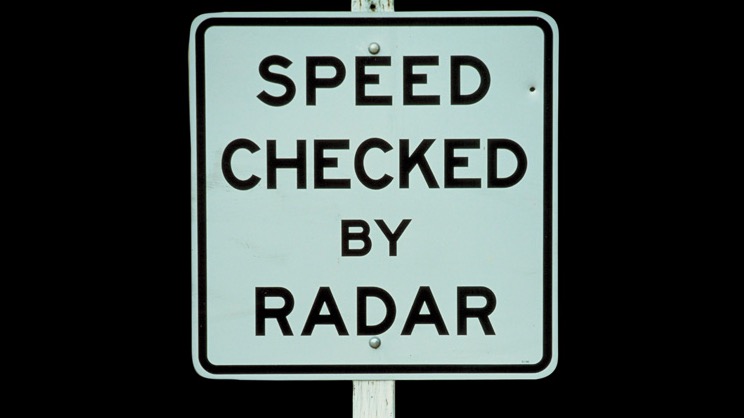ISPs Look to Avoid State Speed Traps

The smarter way to stay on top of broadcasting and cable industry. Sign up below
You are now subscribed
Your newsletter sign-up was successful
Related: Pai Seeks Clarity on Broadband Privacy
Internet service providers and their critics are at odds over two familiar issues — broadband speeds and federal pre-emption of state laws. Those critics include a bunch of state attorneys general who said ISPs are trying to gut protections against deceptive advertising and turn a limited safe harbor into full-time blanket immunity.
The American Cable Association, NCTA-The Internet & Television Association and USTelecom, which between them represent the vast majority of ISPs, have asked the FCC to “clarify” via a declaratory ruling that there is a national regime for measuring and disclosing actual broadband speeds. Further, the trade groups said, that ruling precludes states from trying to enforce a “patchwork” of “different and/or inconsistent broadband speed metrics under state false advertising laws.”
While they use the less knee-jerk term “preclude,” activist groups and state attorneys general see “pre-emption” in flashing neon lights and are trying to pull the plug on the request.
“In ACA’s view, there is a clear public policy benefit to the commission’s approach, which is designed to provide consumers across the country with uniform, accurate and useful information by requiring BIAS [broadband internet access service] providers to disclose the easily understandable metric of average upload and download speeds at peak usage periods, while avoiding the imposition of undue costs and burdens on smaller entities,” the ACA said in comments to the FCC in support of the petition for declaratory ruling by NCTA and USTelecom.
It cited, for one, an action brought by New York State against then-Time Warner Cable (now Charter Communications) it said was “based on unofficial measurement tools.” NCTA and USTelecom also mentioned state efforts aimed at Cablevision Systems and Verizon Communications in the past couple of years, saying, “Such state-level actions are causing significant uncertainty, confusion and potential unwarranted liability. ACA says smaller operators are particularly at risk if, having met the FCC’s disclosure standards, they have to deal with threats of state action, which may or may not even be legal.”
Turning to FCC for Guidance
The smarter way to stay on top of broadcasting and cable industry. Sign up below
The ISPs said they should be able to rely on the FCC’s guidance for measuring and reporting actual broadband speeds.
“If New York State prevails in its enforcement action,” the ACA, which represents smaller, independent cable operators, said, “and other states prevail in similar actions as well, BIAS providers would not only have to continue complying with the commission’s requirements, but also incur the costs and burdens of additionally ensuring that they were measuring and reporting ‘actual’ broadband speeds in conformity with the preferences of their states.”
NCTA, which represents the broader cable-TV industry, and USTelecom, a telco group, also have asked the FCC to declare that ISPs have flexibility to comply with its transparency requirements through alternatives to a safe harbor approach.
Related: Supremes Stand Up for Speech
A consortium of 35 state attorneys general — who don’t much like ISPs trying to stop them from enforcing state false advertising laws on internet speeds — have teamed up to attempt to block the ruling.
“Broadband access is an essential aspect of our constituents’ work, life and play,” the consortium wrote to the FCC. “The states’ traditional consumer protection powers must be left undisturbed to protect consumers from false and misleading claims by broadband providers regarding the provision of services that are an essential part of 21st century life throughout the United States.”
They said such a declaration by the FCC is “procedurally improper, and would upend the longstanding dual federal-state regulation of deceptive practices in the telecommunications industry.”
When Federal Rulings Don’t Rule
Nonprofit public-interest group Public Knowledge is also fighting back hard. It says a court has already ruled — in the Charter/TWC New York State case — that federal regulations do not pre-empt state consumer protection laws.
“States are and should continue to be free to enforce their generally applicable consumer protection laws against companies of all kinds, including broadband, cable and telecommunications companies,” Public Knowledge said.
Public Knowledge suggested the ISPs are grasping at deregulatory straws, saying they have failed to cite any statutory authority giving the FCC permission to extend blanket pre-emption over state fraud, or misrepresentation, claims. It said that “merely vaguely averring to the uncontroversial point that the commission, at times, pre-empts state communications regulations” is insufficient to justify blanket pre-emption.
The FCC is collecting input until July 3, but is on no timetable to act on the ISP request.
The regulator is also asking whether it should be pre-empting state and local regulations in some instances, including state franchise authority rules on tower siting and pole attachments.
Contributing editor John Eggerton has been an editor and/or writer on media regulation, legislation and policy for over four decades, including covering the FCC, FTC, Congress, the major media trade associations, and the federal courts. In addition to Multichannel News and Broadcasting + Cable, his work has appeared in Radio World, TV Technology, TV Fax, This Week in Consumer Electronics, Variety and the Encyclopedia Britannica.

